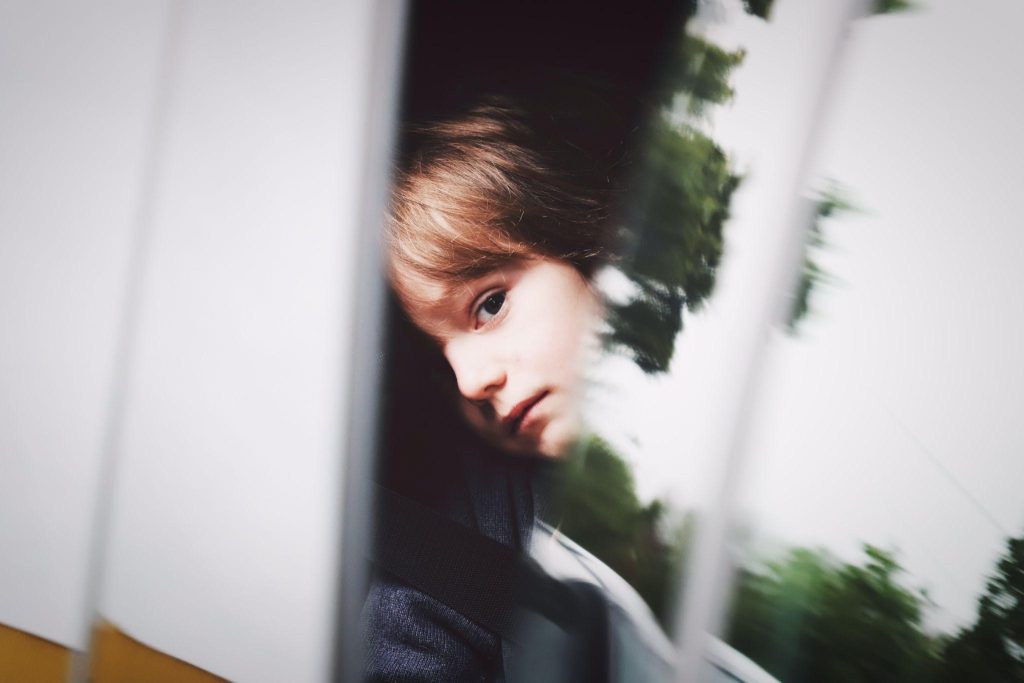IMPACT OF CHILDHOOD TRAUMA ON SELF-ESTEEM

ESSENTIAL FACTS:
- Experiencing any abuse in childhood increases the risk of depression and anxiety symptoms in adulthood by over two-fold.
- Self-esteem is a potential mediator between childhood trauma and diseases in adulthood.
- Studies have found that 28.9% of patients with psychiatric disorders have a history of Childhood trauma.
- Childhood trauma affects an individual's mental health by impairing their self-esteem.
- Self-esteem is an individual's subjective evaluation of their worth, which is crucial in psychological well-being.
- Social Problem-Solving and functioning are highly linked with high self-esteem.
WHAT IS CHILDHOOD TRAUMA:
Childhood trauma or maltreatment, defined as emotional, physical, and sexual abuse or neglect before the age of 16, is a significant contributor to the long-term deterioration of mental health in adulthood by promoting negative self-concept.
Studies have shown that childhood adversity, especially if persistent or severe, can lead to adverse changes in self-worth and self-awareness. This leads to the formation of low self-esteem, where individuals do not see themselves as worthy of happiness and success, making them prone to social isolation and mental illnesses like depression and anxiety. Hence, individuals who have suffered childhood trauma are more likely to be self-deprecating and self-loathing, thus developing lower emotional self-esteem.
HOW IS SELF ESTEEM BUILT?
Forming a stable and positive self-concept during adolescence is crucial, as it sets the stage for later developmental milestones.
Two important constructs of self-concept are:
1. Physical self-concept: It refers to how individuals perceive their physical appearance. A weak and negative physical self-concept may reduce adolescents' physical activity, leading to a negative self-image and an increased risk of emotional dysregulation.
2. Social self-concept: It reflects how individuals perceive their abilities and social skills when interacting with peers. Social self-concept emerges later than physical self-concept. An unhealthy social self-concept also contributes to the development of internalizing problems, including stress and depression.
PARENTING STYLE AND SELF-ESTEEM:
Meta-analyses have found that the immediate social environment of the child, including peers, teachers, and family, has a mutual and continuous influence on self-concept, with the family playing the most crucial role. Evidence shows that parental mindfulness and sensitivity to their children's interests and needs positively affect their self-concept. In contrast, neglect, low acceptance, and high expectations have adverse effects, prominently shame and anxiety.
Authoritarian parenting style, where children are given strict rules to follow with minimal negotiation, is negatively related to the development of low self-esteem.
Democratic parenting style: where parents guide children toward independence by encouraging problem-solving and allowing mistakes to serve as teachable moments. This style is positively associated with problem-solving and self-efficacy.
IS HIGH SELF-ESTEEM BENEFICIAL:
The findings reveal that self-esteem is crucial across key areas of life, including relationships, academics, work, mental health, and physical health. It is a robust foundation for cultivating essential skills such as self-efficacy, emotional intelligence, attachment security, and a growth mindset. Emphasizing and nurturing self-esteem can lead to profound improvements in overall well-being and personal development.
Debates about the presumed benefits of self-esteem have persisted for decades. Notably, the study found that abusive experiences may lead to a defensive form of high self-esteem and superiority that masks underlying insecurities and self-doubt, serving a common belief that high self-esteem is needed to move ahead in life.
A WORD FROM MENTAL NURTURING:
Childhood trauma remains a pervasive global issue with far-reaching impacts that extend into every corner of society. Among those with a history of abuse, behaviors such as school absenteeism, risky behaviors and isolation become more prevalent. The impact of child maltreatment on society becomes particularly evident in the context of criminal behavior and personality disorders, especially anti-social. Notably, a link between experiencing abuse during childhood and delinquent behavior in adolescence has been observed.
As emphasized by the World Health Organization, child maltreatment includes physical, emotional, and sexual abuse, neglect, and exploitation, all potentially harmful to a child's overall health. According to existing literature, traumatic experiences during formative years lead to challenges in interpersonal relationships and might result in maladaptive behaviors. For instance, children who are frequently abused often exhibit serious mental problems, such as panic, post-traumatic stress, suicidal tendencies, violent tendencies, and aggression. Therefore, childhood trauma is a significant contributor to low self-esteem and the development of unhealthy, often toxic coping strategies. It is crucial to educate people on effective parenting, and there is no substitute for the security and guidance that comes from consulting a trained mental health professional for education and solutions to behavioral troubles.
RESOURCES:
● Orth U, Robins RW. Is high self-esteem beneficial? Revisiting a classic question. Am Psychol. 2022 Jan;77(1):5-17.
● Adigun OT. Self-esteem, self-efficacy, self-concept and intimate image diffusion among deaf adolescents: A structural equation model analysis. Heliyon. 2020 Aug 17;6(8):e04742.
● Daemen M, van Amelsvoort T; GROUP investigators; Reininghaus U. Momentary Self-esteem as a Process Underlying the Association Between Childhood Trauma and Psychosis: Experience Sampling Study. JMIR Ment Health. 2023 Apr 5;10:e34147.
● Li C, Fu P, Wang M, Xia Y, Hu C, Liu M, Zhang H, Sheng X, Yang Y. The role of self-esteem and emotion regulation in the associations between childhood trauma and mental health in adulthood: a moderated mediation model. BMC Psychiatry. 2023 Apr 11;23(1):241

Written by:
Dr.Saba Munir, MBBS,
On April 02, 2025

